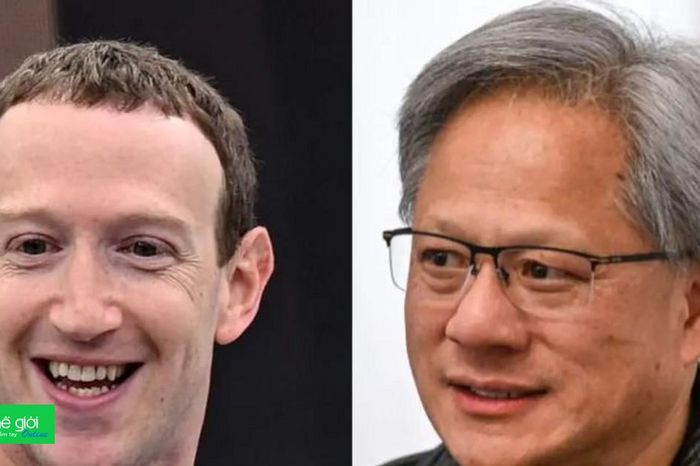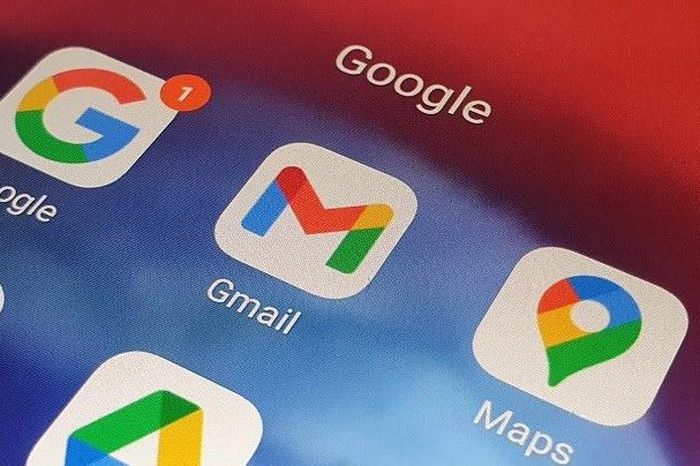Google's dilemma

On December 6, Google launched a new generation AI model called Gemini. DeepMind CEO Demis Hassabis affirmed that this is the company's most powerful chatbot.
Just two months later, the search giant revealed it had built an even better version. According to Google, Gemini 1.5 is big, fast and comes with more features than its predecessor.
On February 15, in a 1,600-word blog post, Gemini 1.5 was introduced in an interesting way full of exciting reels, causing AI researchers and the technology press to report loudly.
Leading but left behind in the AI race
However, Gemini and Google's aura only lasts a few hours.
Later that day, after the "fever" called ChatGPT, OpenAI continued to stir up the global technology community when it introduced the Sora model capable of creating short videos under one minute, with high realism. with a few lines of command.
On social network X, many users expressed surprise with the video quality from the new AI model. Not only are the images realistic, many short videos also show physical simulations close to reality.
OpenAI's Sora model leaves Gemini in the dust. Photo: OpenAI.
"This could be the moment that makes everyone gasp with AI," said Tom Warren, editor at The Verge .
Not only was it overshadowed, the company's efforts also received cold water. On February 23, Google announced it was temporarily suspending Gemini's ability to create human images after the tool drew historically inaccurate images.
Some users asked Gemini to create images of groups or historical figures such as the American founders. As a result, the AI returned images of non-white people.
That's led to conspiracy theories that Google is intentionally avoiding depicting white people, going against historical reality.
'It was a PR nightmare for the company. Google employees are angry," an internal source revealed to Business Insider.
Since 2016, CEO Sundar Pichai has described Google as a leader in AI. However, until now, this technology giant has still had difficulty turning its fundamental research into impressive products.
It is a fact that Google has been researching artificial intelligence for more than a decade. It even quietly incorporates AI into Search, advertising products, and YouTube video recommendations.
Google acquired DeepMind, a pioneering AI startup, in a secret auction that was considered very fierce in 2014. In 2017, the company published a groundbreaking research paper introducing how to quickly and more efficient for AI to analyze information.
This research paper was so influential that OpenAI itself used it as the foundation for ChatGPT later.
A few days after launch, Gemini had a serious error when creating images related to history. Photo: Android Police.
All of this shows that Google is one of the first big companies to show agility about the prospects of AI. However, how could a technology giant leave a small startup like OpenAI behind?
Part of the answer may lie in Google's ability to take risks. According to Caesar Sengupta, former vice president of Google, said that the company is concerned that releasing generative AI products risks causing a public backlash if they have errors.
A similar scenario also happens with voice assistants. Specifically, according to two sources inside the project, Google is concerned about becoming the first company to launch a product like Google Mic, which has many potential privacy headaches.
In the end, Amazon's Alexa was the first to launch, while Google was left in second place.
The search giant has good reason to be cautious, as user confusion over new technologies has been evident.
However, this also means that Google has to keep the products that they are ready to release first and let their competitors do it.
It's hard to be optimistic about the future
Sundar Pichai, Google's chief executive, said more than a year ago that the company would cut about 12,000 jobs, or 6% of its workforce.
Google office in Massachusetts, which was affected by layoffs in January. Photo: New York Times.
Since early January this year, the company has cut more than 1,000 jobs, affecting departments such as ad sales, YouTube and voice-controlled assistant products.
Employees say the office became gloomier. As the company tries to accelerate its development of artificial intelligence to compete with rivals like Microsoft and OpenAI, some employees who helped build Google's technology feel estranged.
"Many buildings were only half empty at 4:30 (pm)," Hirsh Theriault wrote in a LinkedIn post. "I know a lot of people, myself included, who were happy to work extra hours in the evenings or weekends just to get work done or just for fun. Those days are gone."
Appointed CEO of Google in 2015 and Alphabet in 2019, Sundar Pichai has proven himself to be a strong 'peacetime' CEO for the company.
He works effectively and consistently, protects Google's search business well and is good at reconciling relationships with regulatory agencies.
Under him, shareholders receive many benefits. Google's market capitalization is currently at about $1,700 billion, up from more than $400 billion in 2015 when Pichai took over.
More and more voices are calling for CEO Sundar Pichai to be replaced because Google is falling behind in the AI race. Photo: Bloomberg.
The problem, however, is that 80% of Alphabet's revenue still comes from advertising, most of which come from the type of simple text ads that have appeared on Google search results pages since the turn of the millennium.
While the company has difficulty diversifying its products, worries about having to increase cash spending are increasing.
At Google, risky projects are viewed with skepticism, especially if they don't sell advertising.
'Google cannot get out of its own way because it is too stubborn to protect what it has,' an anonymous former director shared with Business Insider.
Over the past decade, there have been few notably successful Google products launched to market. On the contrary, the company has "discontinued" many products from augmented reality glasses to short-term forays into gaming.
Even core products are lagging significantly. Users have long complained, and researchers have recently discovered a decline in the quality of Google search results. The emergence of AI-like models like ChatGPT only makes the situation worse.
According to analyst Mark Shmulik, it is still impossible to say whether Google Search is dead or replaced by Generative AI, until users start switching to other platforms.
But that could come sooner than you think. Gartner recently predicted that traditional search will decline by 25% by 2026 due to the rise of AI.
If there are no breakthroughs soon, the era of Google's search king will be a thing of the past. Photo: The Verge.
Google's current situation may remind of Microsoft under CEO Steve Ballmer, when the company missed the smartphone trend, Search, and cloud computing wave and was in turn surpassed by Apple, Google and Amazon.
However, under the direction of current CEO Satya Nadella, Microsoft has made a spectacular transformation, typically the collaboration with OpenAI.
According to analyst Ben Thompson, Google is in need of a reform, which means eliminating the people who make the company 'crazy', including CEO Sundar Pichai. His comments were widely circulated by Google employees and others in Silicon Valley.
 China builds rockets that deliver goods to anywhere on Earth within 1 hour
China builds rockets that deliver goods to anywhere on Earth within 1 hour How Mark Zuckerberg, Jensen Huang, Sam Altman and CEOs of major technology companies use AI
How Mark Zuckerberg, Jensen Huang, Sam Altman and CEOs of major technology companies use AI 20 years of Gmail's birth: From April Fool's joke to the pinnacle of technology
20 years of Gmail's birth: From April Fool's joke to the pinnacle of technology Will civil supersonic aircraft return?
Will civil supersonic aircraft return? 73 million US carrier customer accounts had their personal information exposed
73 million US carrier customer accounts had their personal information exposed Recycle cooking oil into biofuel
Recycle cooking oil into biofuel